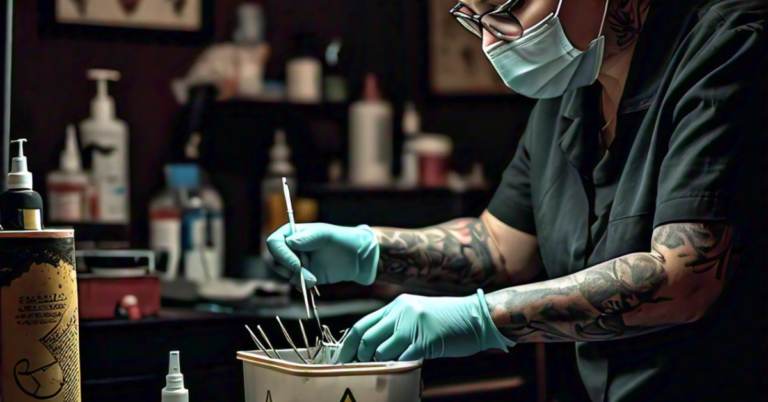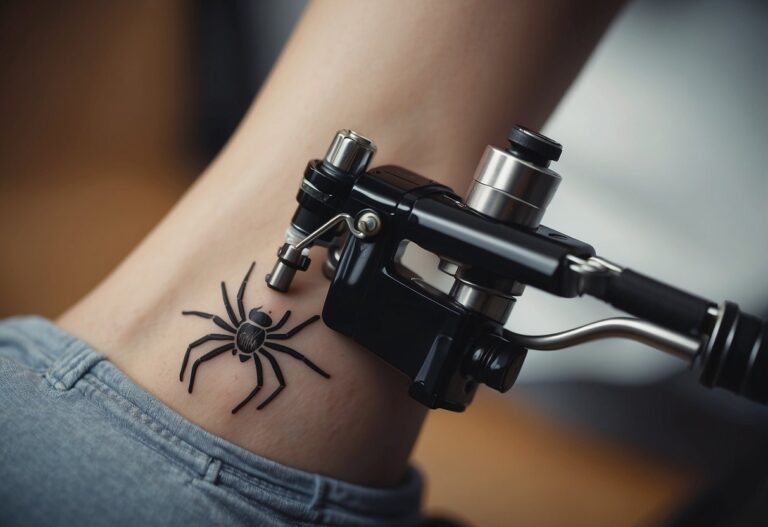Is Olive Oil Good for Tattoos? Discover the Benefits and Risks
Trying to figure out if olive oil is good for your new tattoo? You’re not alone! The aftercare of a tattoo is crucial for keeping your ink fresh and vibrant. Olive oil can be helpful for your tattoo, but it’s important to use it correctly and at the right time. As you read on, you’ll learn how to make the best use of olive oil in your tattoo aftercare routine and avoid common pitfalls.
Many people rave about using oils for their skin, but tattoos require special consideration. Olive oil, particularly extra virgin, has properties that can benefit your skin. However, it’s not always the best choice for freshly inked skin. Used too early, it might interfere with the healing process and even draw out some of the ink. Understanding when and how to apply olive oil will make a big difference in how your tattoo heals and looks.
Everyone wants their tattoo to look awesome, right? That’s why it’s important to get these details right. Keep reading to discover the best practices for applying olive oil to your tattoo, and ensure you’re giving your new art the care it deserves!
Key Takeaways
- Olive oil can be useful for tattoos but should only be used at specific stages.
- It’s best to avoid olive oil on a fresh tattoo to prevent complications.
- Extra virgin olive oil can help in later healing stages to keep skin hydrated.
The Role of Olive Oil in Tattoo Aftercare
Olive oil has several benefits when it comes to tattoo aftercare. It can moisturize the skin, help prevent infections, and can be compared to other oils that are also used for tattoo care.
Moisturizing Benefits
Olive oil is a great moisturizer for tattoos. It helps to keep the skin hydrated and soft. Extra virgin olive oil is rich in vitamins and antioxidants, like Vitamin E, which can promote healthy skin. This oil is especially good for new tattoos as it prevents the skin from drying out, reducing the risk of scabbing and peeling.
Collagen production is also boosted by olive oil, helping to maintain the tattoo’s vibrant appearance. The moisturizing properties can help keep your tattoo looking fresh and prevent cracks in the ink. Additionally, olive oil is easily absorbed by the skin, unlike heavier lotions that might clog pores.
Prevention of Infection
Olive oil has natural antibacterial properties that can help protect your tattoo from infections. It’s important to keep the tattooed area clean to avoid bacteria. Anti-inflammatory properties in olive oil can reduce swelling and soothe irritated skin, promoting quicker healing.
Olive oil can create a breathable barrier without depriving the tattoo of oxygen, which is crucial during the healing process. This helps in speeding up wound healing. If you’re concerned about infections, olive oil can be a safer, natural alternative to some processed aftercare products.
Comparing Oils for Tattoo Care
Coconut Oil is another popular choice for tattoo aftercare. It also has antibacterial and moisturizing benefits but can feel greasy. Jojoba Oil is closely similar to the natural oils of your skin, making it an excellent option for those with sensitive skin. Grapeseed Oil is light and contains antioxidants, but olive oil’s combination of vitamins and ease of absorption makes it particularly suitable.
In comparing refined and virgin olive oils, extra virgin olive oil stands out due to its minimal processing and higher nutrient content. Each oil has its pros and cons; however, olive oil offers a balance of hydration, protection, and healing properties that are essential for tattoo care.
Best Practices for Applying Olive Oil to Tattoos
Using olive oil for tattoo aftercare can offer many benefits. It helps moisturize, nourish, and can aid in the healing process of your new tattoo.
Application Techniques
When applying olive oil to your tattoo, it’s important to ensure your hands and tattoo are clean. Use a mild soap and warm water to gently clean the area. Pat it dry with a soft towel.
Apply a small amount of olive oil to your fingertips. Gently massage it into the tattoo with circular motions. This helps the oil to be absorbed better into the skin. Avoid rubbing too hard to prevent irritation.
When and How Much to Apply
For new tattoos, it’s best to apply olive oil 2-3 times a day. Start with a very small amount, about the size of a pea.
Over-applying can lead to greasy skin which might hinder the tattoo’s healing process. If you notice the tattoo looks overly shiny or feels sticky, you’ve used too much. Blot away the excess with a clean tissue.
Choosing the Right Olive Oil
The type of olive oil you choose is crucial. Extra virgin olive oil is the best option due to its purity and nutritional content. It’s less processed and contains no additives, making it safe for unbroken skin.
Refined olive oil is another option, but it’s less beneficial because of the manufacturing process where many nutrients are lost. Avoid olive pomace oil as it has been heavily processed and may contain additives that are harmful to the skin.
By following these practices, you can help your tattoo stay vibrant and healthy. Always consult your tattoo artist or a dermatologist if you have any concerns.







